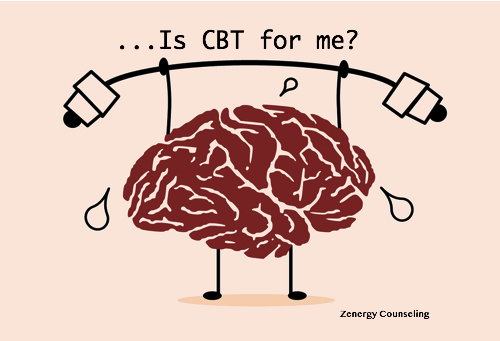How do you feel about the weather today? Are you upset that it is ‘X’ degrees outside and you will suffer in this heat/cold or are you excited about it being ‘X’ degrees outside so you can go out and do what you love to do outdoors?
Think about it…and now notice how your behavior and feelings change based on your thought process. Did you sit up straight and notice a smile from ear to ear or did you automatically feel drained and wanted to hide from the world? That is the probably the easiest way of describing what Cognitive Behavioral Therapy is all about.
Cognitive Behavioral Therapy or CBT, emphasizes the impact of ‘thoughts, feelings, and behavior’ have on each other. It is a goal-oriented, short term therapy style which brings the focus on a solution in a practical way by challenging distorted or automatic inaccurate thinking that all of us are guilty of. It is a partnership between psychotherapy and behavioral therapy because identifying the root of an issue will make sense of the past and changes in behavior will bring a different outcome. It allows the individual to take control of the situation rather than have the situation take control of him/her.
Like any therapy style, CBT also has its root in a healthy therapeutic alliance between client and counselor. CBT is known for its impactful results primarily for issues such as Depression, Anxiety, Post Traumatic Stress, Phobias, but it can be helpful for a wide variety of struggles. Though it is a style that can be short term due to its ability to focus on goals, it is important to remember that there is no quick fix for mental health issues. It requires partnership in the sense that the counselor provides strong expertise and the client brings his/her willingness to incorporate learned skills outside of counseling.
Many times people judge the words “goal oriented” with rigidity but that is not the case. As mentioned earlier that therapeutic alliance is the core of any good therapy and CBT is a strong believer in the impact it has on healing from past experiences. It is considered goal oriented because you have carried your experience with you for so long, there is no reason to suffer longer. The goal could be as simple as decreasing symptoms you struggle with or increase your coping skills.
If you feel that this type of therapy may be helpful for you, contact a therapist with CBT experience and find out how this individualized style can help you reach your goal!

